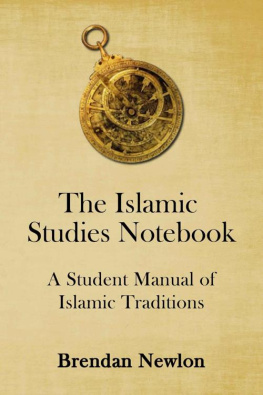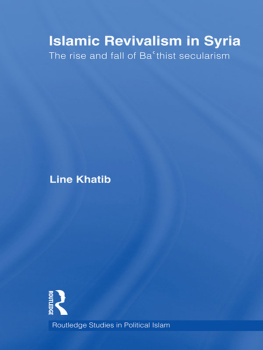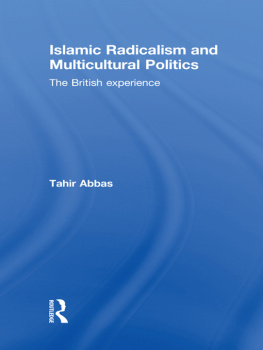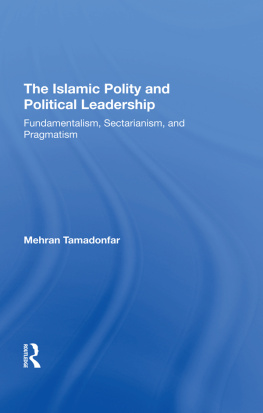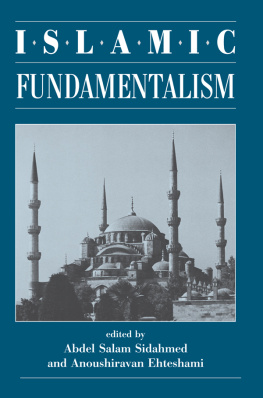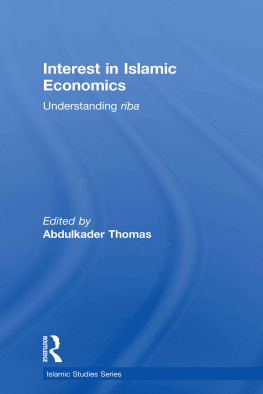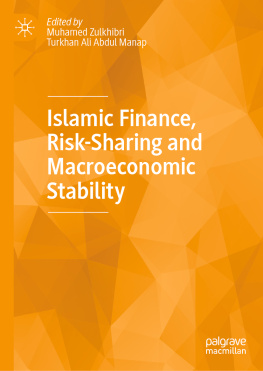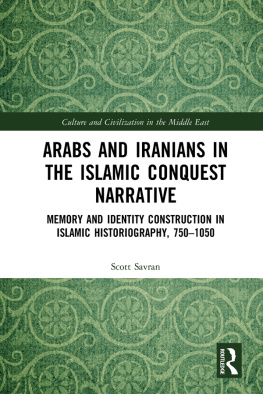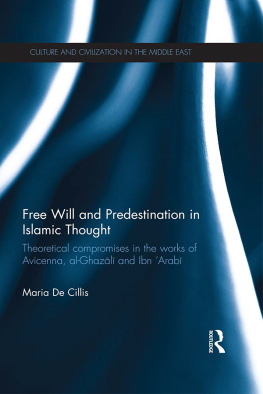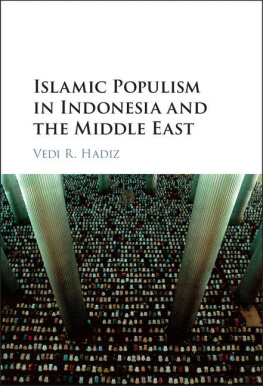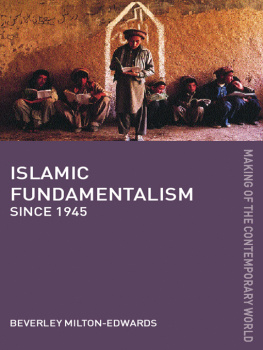ROUTLEDGE LIBRARY EDITIONS:
POLITICS OF ISLAM
ISLAMIC LAW
ISLAMIC LAW
Social and Historical Contexts
Edited by
AZIZ AL-AZMEH
Volume 9
First published 1988
This edition first published in 2013
by Routledge
2 Park Square, Milton Park, Abingdon, Oxon, OX14 4RN
Simultaneously published in the USA and Canada
by Routledge
711 Third Avenue, New York, NY 10017
Routledge is an imprint of the Taylor & Francis Group, an informa business
1988 Aziz Al-Azmeh
All rights reserved. No part of this book may be reprinted or reproduced or
utilised in any form or by any electronic, mechanical, or other means, now
known or hereafter invented, including photocopying and recording, or in any
information storage or retrieval system, without permission in writing from the
publishers.
Trademark notice: Product or corporate names may be trademarks or registered
trademarks, and are used only for identification and explanation without intent
to infringe.
British Library Cataloguing in Publication Data
A catalogue record for this book is available from the British Library
ISBN: 978-0-415-64437-2 (set)
ISBN: 978-0-203-07906-5 (set)
ISBN: 978-0-415-83081-2 (Volume 9)
ISBN: 978-0-203-38132-8 (Volume 9)
Publisher's Note
The publisher has gone to great lengths to ensure the quality of this reprint but
points out that some imperfections in the original copies may be apparent.
Disclaimer
The publisher has made every effort to trace copyright holders and would
welcome correspondence from those they have been unable to trace.
ISLAMIC LAW: SOCIAL AND HISTORICAL
CONTEXTS
ISLAMIC LAW
Social and Historical Contexts
EDITED BY
AZIZ AL-AZMEH
First published 1988 by
Routledge
a division of Routledge, Chapman and Hall
11 New Fetter Lane, London EC4P 4EE
Published in the USA by
Routledge
a division of Routledge, Chapman and Hall, Inc.
29 West 35th Street, New York NY 10001
1988 Aziz Al-Azmeh
Printed and bound in Great Britain by Mackays of Chatham Ltd, Kent
All rights reserved. No part of this book may be reprinted or
reproduced or utilized in any form or by any electronic, mechanical, or
other means, now known or hereafter invented, including photocopying
and recording, or in any information storage or retrieval system, without
permission in writing from the publishers.
British Library Cataloguing in Publication Data
Islamic law: social and historical contexts.
1. Islamic law
I. Al-Azmeh, Aziz
340.59
ISBN 0-415-00477-2
Library of Congress Cataloging-in-Publication Data
ISBN 0-415-00477-2
CONTENTS
The papers printed in this book were presented at a colloquium held under the same title at the Department of Arabic and Islamic Studies in the University of Exeter in September 1985. One other paper presented at the colloquium, Baber Johansen's contribution on the development of Hanafite land tax in Mamlk and Ottoman times, has since grown into a book and is being separately published in the Exeter Arabic and Islamic Series.
The main thrust of the colloquium was a concern with the mutability of islamic law. Written contributions and discussions alike took up the variations of islamic law in terms of social and temporal contexts and in relation to legislative authorities, islamic and secular. Education for legislation, the relation between legislative and political authorities, and aspects of judicial organisation were tackled. Throughout, the question of what it was that made islamic law islamic kept forcing itself upon the attention of the colloquium; aspects of the formation and formulation of such law were addressed, as were matters relating to the delimitation of the fields of competence, relevance, and applicability of islamic law. Attempts at the imposition of uniformity, theoretical and practical, on islamic law, were understandably a major concern for Muslim jurists, yet these same authorities were constantly realising this attempt at homogenising society by a variety of matters, chief among which was perhaps the lack of such economic homogenisation as commodity relations brought to the modern world.
The opening contribution by Martha Mundy has the character of an introductory essay. It dissects modern scholarship on the Muslim law of inheritance in relation to orientalist scholarship and the intellectual and worldly bearings of such scholarship, and provides multifarious insights into the social conditions under which such laws emerged and operated. The key to the question of inheritance law was found to reside in social history, and in the interplay between history and juristic rationalism. Richard Repp's contribution traces the historical shape of relation between islamic law and state legislation in the Ottoman Empire, and this theme of the relation between islamic and other forms of law is then further studied by Enid Hill, who describes the place of islamic law in the legislative activity of the Arab World's greatest jurist in modern times, Abd al-Razzaq al-Sanhr. Professor Hill also does the great man's memory a substantial service by her detailed account of his career. The islamic institutions of justice are examined by Amin Haji and Allan Christelow. In the former contribution, Fatimid legal institutions are described, while Professor Christelow examines the factors that led to, and the consequences of, the transformation by French colonial authorities of the legal system of Algeria in the nineteenth century. Safiya Safwat describes the attempt by Jafar Numeir to bring about the islamisation of the Sudanese legal system, and the contrast between this hasty affair and the prodigious efforts of Sanhr repays reflection. Finally, the author of these lines tries to look at the conceptual means by which islamic legal theory related laws derived from various contexts to its own principles of lawmaking.
I should like to thank Mrs Sheila Westcott for her unfailingly prompt and faultless typing of this book, and Mr Ronald Buckley for editorial assistance and the preparation of the index.
Aziz al-Azmeh
| BSOAS | Bulletin of the School of Oriental and African Studies |
| EI 2 | Encylopaedia of Islam , new edition, Leiden-London, 1954- |
| IA | Islam Ansiklopedisi , Istanbul, 1940- |
| IJMES | International Journal of Middle East Studies |
| JA | Journal Asiatique |
| JESHO | Journal of the Economic and Social History of the Orient |
| SI | Studia Islamica |
)
Mundy Martha
1.1 Introduction
Intersecting economy and family, the laws governing the devolution of property have loomed large in comparative studies of law and of society ().
This is equally true of the islamic laws of succession. The writings of islamic tradition contain reflections on the genesis and meaning of the islamic laws of inheritance, which represent a social commentary of a kind ().
This paper examines the character of such modern interpretations and the pattern of legal change in islamic laws of inheritance during the last one hundred and fifty years. As will be seen, the social interpretation given to the law has been closely tied to the process of change in the law; the two need to be examined together. The present analysis will begin with the standard modern sociological interpretation of the law, which itself rests upon a general philosophy of law of great renown. To this interpretation of the islamic law of succession there is a past and a future, the outlines of which can be discerned today. From the standard modern interpretation we shall first move backwards through the archaeology of this modern wisdom and then forwards to the readings of the law emerging or re-emerging at the present moment.


